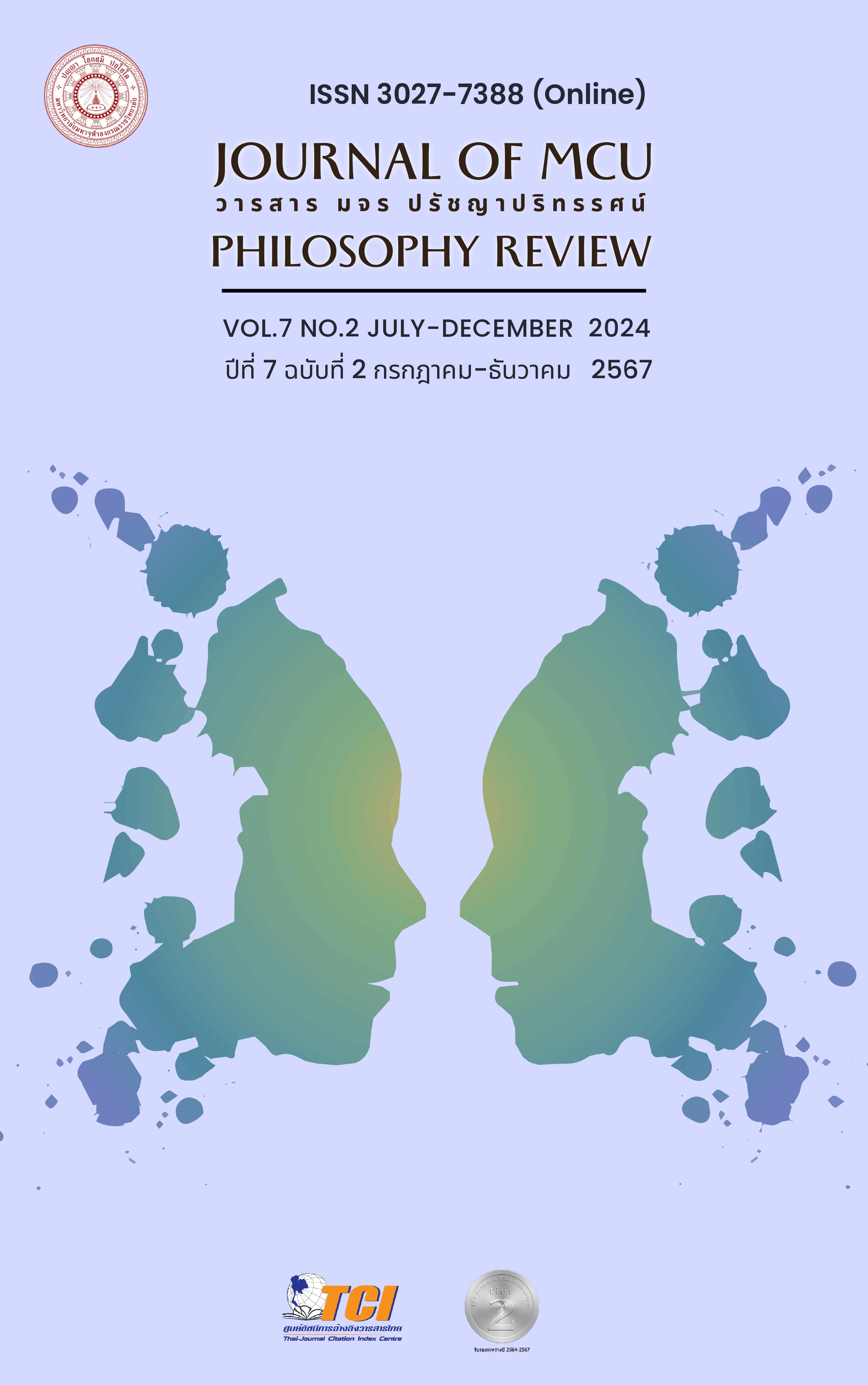A Concept of Puñña: A Buddhist Epistemological Analysis
Main Article Content
Abstract
This Article aimed to study three objectives: 1) to study the concept of Puñña in Theravada Buddhist philosophy, 2) to study the epistemological theory in Theravada Buddhist philosophy, and 3) to analyze the epistemological theory in examining the concept of Puñña in Theravada Buddhist philosophy. This thesis employed the documentary research methodology. In the study of the first objective, it was clearly found that the concept of Puñña can be divided into two categories: 1) the casual Puñña; it basically means the good deed done through three kinds of meritorious action, merit acquired by giving, observing the precepts, and mental development, and 2) resultant Puñña; the effect or consequence caused by such good deed. To have proper understanding of both kinds of Puñña, it can help one examines the mentioned concept clearly. In the second objective, it clearly showed that there appears the origin of three kinds of knowledge; empiricism holds that knowledge can be obtained by means of experience, rationalism holds that knowledge can be obtained by means of reasoning and intuitionism holding that knowledge is what is intuited. In the third objective, while examining the concept of Puñña through empirical experience, it is found that Puñña at the level of giving and observing precepts can be verified through the six senses. When verifying the concept of Puñña through rationalism, it is evident that when things happen according to cause and conditions, creating good causes, such as giving, sharing, and refraining from harming others, will naturally lead to good outcomes. This can be likened to the idea that when we love ourselves, we do not want others to harm us. By not harming others and helping them, others will also experience happiness, and to maintain this happiness, they must continue to help and support one another. Finally, when verifying the concept of Puñña through intuitionism, it is understood that knowledge of merit arises from within the person and can be self-verified. This type of knowledge can be mutually confirmed when individuals have the same level of understanding. From this study, the researcher concludes that we should not validate the concept of Puñña using just one type of epistemology. Instead, we should use a tripartite approach, verifying it through empiricism, rationalism, and intuitionism.
Article Details

This work is licensed under a Creative Commons Attribution-NonCommercial-NoDerivatives 4.0 International License.
บทความที่ได้รับการตีพิมพ์เป็นลิขสิทธิ์ของวารสาร มจร ปรัชญาปริทรรศน์
ข้อความในบทความที่ได้รับการตีพิมพ์ในวารสาร ถือเป็นความรับผิดชอบของผู้เขียนบทความ และข้อคิดเห็นนั้นไม่ถือว่าเป็นทัศนะและความรับผิดชอบของกองบรรณาธิการวารสาร มจร ปรัชญาปริทรรศน์
References
มหาจุฬาลงกรณราชวิทยาลัย. (2539). พระไตรปิฎกภาษาไทย ฉบับมหาจุฬาลงกรณราชวิทยาลัย. กรุงเทพมหานคร: โรงพิมพ์มหาจุฬาลงกรณราชวิทยาลัย.
พระพรหมคุณาภรณ์ (ป.อ. ปยุตฺโต). (2557). พุทธธรรม ฉบับปรับขยาย. พิมพ์ครั้งที่ 39. กรุงเทพมหานคร: โรงพิมพ์มหาจุฬาลงกรณราชวิทยาลัย.
สมภาร พรมทา. (2560). พุทธปรัชญากับญาณวิทยา. พระนครศรีอยุธยา: โรงพิมพ์มหาจุฬาลงกรณราชวิทยาลัย.
สมภาร พรมทา. (2560) แก่นเดิมของพุทธปรัชญา เล่มที่ ๑. กรุงเทพมหานคร: โรงพิมพ์ บีพีเค พริ้นติ้ง.
สมเด็จพระพุทธโฆษจารย์ (ป.อ. ปยุตฺโต). (2567). ตามพระใหม่ ไปเรียนธรรม. พิมพ์ครั้งที่ 2. กรุงเทพมหานคร: โรงพิมพ์ สหธรรมิก จำกัด.
G.T.W. Patrick. (1935). Introduction to Philosophy. Revised Edition, Cambridge Massachusetts: The Riverside Press.
Harold H. Titus. (1968). Living Issues in Philosophy. 8th Edition, New Delhi: Eurasia Publishing House Ltd.
John Hospers. (1997). An Introduction to Philosophical Analysis. 4th Edition, London: Routledge.


